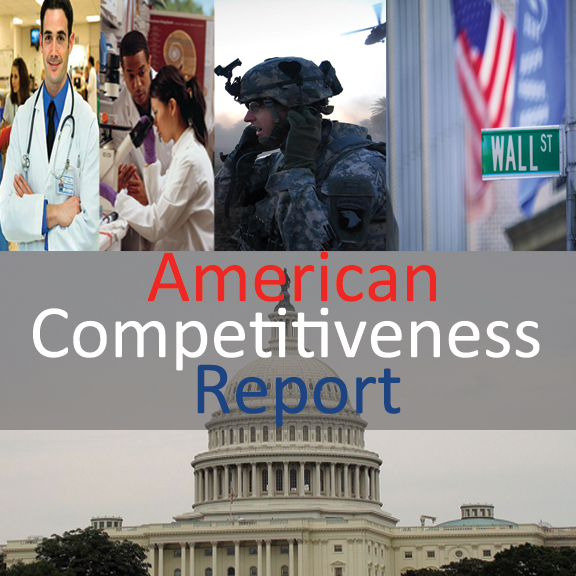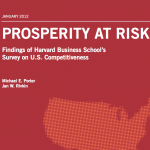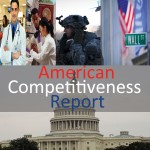
American competitiveness must be a priority in Washington
Many of the best solutions to strengthen American competitiveness are not new.
The Hart-Rudman Commission, for example, more than a decade ago proposed significantly raising investment in science education because of the obvious benefits to U.S. national security, among other reasons.
Yet such seemingly sensible measures still remain out of reach for policymakers. No matter the obvious, and increasingly urgent, signs in the opening years of the 21st Century that a national approach is needed to shore up everything from infrastructure to science and engineering education in order to strengthen America.
According to Sean Kay, a professor at Ohio Wesleyan University, America lacks the unity of purpose and strategic focus that followed the 1957 surprise of the Soviet Union sending the Sputnik satellite into space.
“The United States seems to be suffering strategic paralysis, unable to agree on what the shifting trends in global politics mean for the American future,” Kay wrote in the latest issue of the journal Survival in his article, “America’s Sputnik Moments.”
(Survival is published by the International Institute for Strategic Studies. The author of this blog post is a member of the IISS.)
The years following the Sputnik orbit saw profound investment and bureaucratic initiative that led to ensuing establishment of NASA and DARPA’s predecessor agency, for example. Such feats of creation are literally unimaginable today in a time when growing government programs beyond defense carries immense political liability and broad bipartisan agreement on acute issues is as likely as snow falling on the Beltway in July.
Spending on education, particularly science and engineering but also foreign language training, surged post-Sputnik because of the confidence that this kind of allocation of taxpayer dollars would yield huge returns in the future. National Science Foundation spending rose from $40 million in 1958 to $500 million in 1968, Kay points out. That kind of conviction that government spending in science is a sound investment is missing today.
“What is missing across the political spectrum is a sense that ideology should be informed by basic facts, not the converse. As is often said, the nice thing about science and facts is that they are true whether one believes them or not,” Kay wrote.
Importantly, the Sputnik shock was seen as an issue of national security more than a scientific or technical hiccup in America’s national trajectory. The importance of space to America’s defense was obvious to everyone from President Dwight D. Eisenhower to Congress.
Similarly American’s competitiveness needs to be seen as more than just an economic issue, as it is often framed. It is a national security issue.
After more than a decade of war and historic levels of defense spending, the U.S. can no longer count on its military might as the best measure of its global influence. If anything, further reliance creates strategic liability. It does not have to be. America’s strength comes from many pillars, including education, the political system, immigration policy, the defense industrial base and others. However, most of these are under threat not from an external foe, but from our own mismanagement and lack of strategic vision.
See the American Security Project Report – American Competitiveness: An Issue of National Security.
Improving American competitiveness starts with reframing the national security debate. It is time to take on disparate issues that are at the core of the American system and address them with a sense of common purpose. What is also important now is agreeing this is an urgent issue.
That concord can be an important moment of recognition of the seriousness of our current situation. The steps that should follow are just as clear today as they were to America’s leaders more than 50 years ago.
Read more about American Competitiveness below:
Harvard Business School – American Competitiveness
Harvard Business Review Special Edition
HBS Survey on U.S. Competitiveness: Prosperity at Risk
Check out ASP’s White Paper on American Competitiveness that discusses these issues further:








[…] American Competitiveness Must Be a Priority in Washington August Cole Many of the best solutions to strengthen American competitiveness are not new. […]
[…] All the while, America’s competitiveness keeps taking blow after blow. Congress and the White House run headlong willingly into political skirmishes over these issues while ignoring the big, strategic challenges that will shape America’s security and prosperity well into the 21st Century. […]